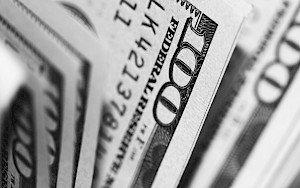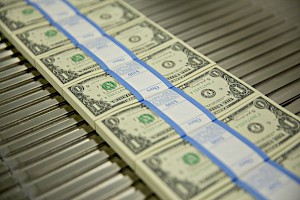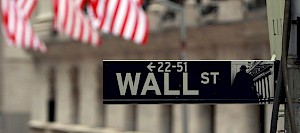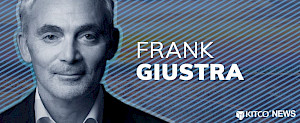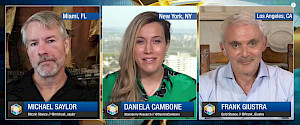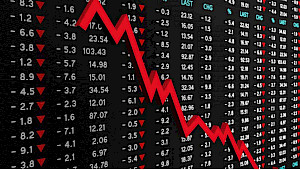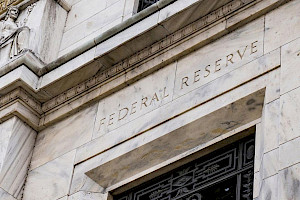I Yell, But Only My iPad is Listening
May 20, 2020“The history of speculative bubbles begins roughly with the advent of newspapers.” – Robert Shiller, “Irrational Exuberance”
When I was a boy, I would watch as my father yelled at the nightly news broadcasts on TV and shake my head. “They can’t hear you!” I would think to myself, but dare not say out loud. Fast forward 50-or-so years later and this morning I caught myself yelling at my iPad while reading two articles. The first headline stated, “Fed says risks to the system are worrying insiders“ and the other, “US treasuries saw record foreign selling in March“ reported on how much of the massive corporate debt in America is poised to fall into junk status, creating a huge risk to the financial system and how foreign holders of US treasuries are beginning to sell after years of consistent buying.
Now? Now you report this?! Now, that the damage is done.” I yelled at my unresponsive iPad.
This episode served to underscore my long-running frustration with both the Federal Reserve and the mainstream financial media. Over the past 20 years I have become a keen observer of both and to the damage they create by allowing bubbles to form in the financial markets. Bubbles that eventually burst, leaving a path of destruction to the real economy in their wake. Their combined complicity in cheerleading bad behaviour and their failure to acknowledge real risks as they emerge is consistent and predictable. The tragedy is that this narrative is designed not for the big players, but for the masses. In the dog-eat-dog world of financial markets, the average investor ranks at the bottom of the food chain when it comes to easy access to useful information.
Harvard University published a study titled, “The Media and Markets: How Systematic Misreporting Inflates Bubbles, Deepens Downturns and Distorts Economic Reality” which is an interesting read, especially the chapter “Bandwagoning and Bubbles”. In one example of a recurring theme, ”In our lifetime, there is no clearer illustration of the nexus between the media and market excess than the speculative bubble in technology stocks. During the so-called ‘Dot-Com Craze’ from 1997 to its peak in March 2000, the NASDAQ index of technology shares rose 322 per cent, only to lose all that gain and more over the subsequent two-and-a-half years. During this incredible run-up in asset prices, reading much of the business press was to enter a parallel universe of groupthink, cheerleading and hype.”
While Wall Street and its legions of cheerleaders lead everyone off the edge of a cliff almost every single time, there are a few contrarian voices that try to warn investors just before a calamity occurs. The problem is that we don’t get adequate airtime in the mainstream financial media.
Case in point, I did an interview with a mainstream newspaper last fall during which I warned investors of an impending collapse caused by massive global debt, the dangers in the corporate bond market, artificially low rates and rampant speculation. I was told it would run as a weekend feature article, but it never did. I reached out to the editor several times, practically begging him to publish it. Because - while I don’t have a crystal ball - the writing on the wall couldn’t be any clearer and if knowledgeable folks like Ray Dalio and others who agree with me are proven right, a lot of people are going to suffer financially. The editor was unresponsive and the silence was frustrating but not surprising.
And then there’s Euro Pacific Capital’s Peter Schiff who also knows what it’s like to be dismissed when trying to sound the alarm that disaster is looming. In 2005, Schiff famously warned about the housing bubble and how real estate values would collapse and bring down the entire American economy with it. CNBC called him “Dr. Doom”. This is the same CNBC nicknamed “Tout TV” for its round-the-clock investment tips which managed to vastly expand its audience and advertising income during the bubble. Schiff continues to ring alarm bells about how the continuing Fed policies are a disaster in the making.
Likewise, the Federal Reserve has played a role in misleading the investing public. Ever since Alan Greenspan ushered in the era of Fed Chair market-pleasers in the late 90’s, the Fed has consistently put the markets ahead of the real economy with its policies. It’s failure to warn the public about impending bubbles is matched only by its Pollyanna predictions that it could turn back the clock once money printing started. Like most mainstream economists, their forecasts are almost universally wrong and they only acknowledge recessions after they are in full swing.
You can always count on the Fed to say the right thing - after it is no longer of any practical use.
A classic example (of many) is past Fed chair Ben Bernanke, who said in a July 2005 response to an interviewer’s question about whether a housing bubble exists, “Well, unquestionably, housing prices are up quite a bit; I think it's important to note that fundamentals are also very strong. We've got a growing economy, jobs, incomes. We've got very low mortgage rates. We've got demographics supporting housing growth. We've got restricted supply in some places. So it's certainly understandable that prices would go up some. I don't know whether prices are exactly where they should be, but I think it's fair to say that much of what's happened is supported by the strength of the economy.”
We all know what happened next: The bubble popped and housing prices reached new lows by 2012. Peter Schiff was right.
In fairness, all government officials see their jobs as instilling confidence in the economy and markets. They know all too well, it’s only confidence that keeps the system afloat. When the public loses confidence, people withdraw from the markets and the economy causing a downward self-fulfilling spiral. When lost, confidence unravels like the emperor’s new clothes. This kind of belief system would be acceptable if the investment game were a level playing field, but it’s not. Wall Street is a big boys game and it’s those who exert influence on Fed policy that will benefit most. While policy makers sooth the markets with calming words, the smart money is usually already heading for the exits, with the same quiet stealth the first class passengers on the Titanic headed to the lifeboats.
Recently, the markets have rebounded off their lows and are back at values I still think are extremely pricey considering the economic reality we now live in. As I said in my recent article (The US dollar; The Final Act), “Judging by the rally in equities since the Fed took action, at least they will save the stock market, which should make the 1% happy. (For the moment.) I don’t think we have seen the beginning of defaults and insolvencies in corporate America yet. The idea that we will have a V-shaped recovery is fantasy.”
I tried to get that piece published in a mainstream newspaper, but it was rejected. (Thankfully, Kitco News ran it, due to its precious metal angle.)
There you have it folks, the rant also received by my iPad. I wonder if my son is listening and shaking his head.



